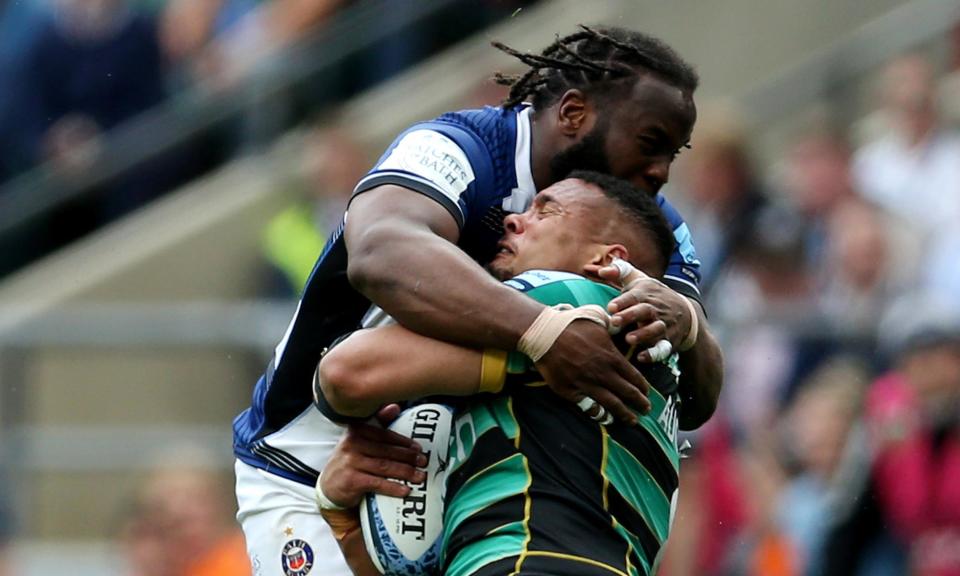Coaches call for rule changes to stop red cards in rugby union ‘destroying game’

Premiership coaches believe existing red-card protocols should be changed in an effort to keep “15 v 15” on the field and avoid “destroying the game” after three major finals last season were marred by sendings-off.
The Bath prop Beno Obano was sent off midway through the first half of last season’s sold-out Premiership final – narrowly won by Northampton – while Sam Cane was dismissed during New Zealand’s World Cup final defeat by South Africa. Toulouse’s Richie Arnold also saw red in extra time of their Champions Cup final win over Leinster. All three were correct decisions according to the current laws but none were flagrant acts of violence.
Bath’s director of rugby, Johann van Graan, believes “the game is now the cleanest and the safest it has ever been” but added that “we should look at how we can mitigate collisions that are unintentional”, pointing out that rugby is a collision sport, played at a ferocious pace that currently gives players little margin for error.
Related: The Breakdown | Why a British-Irish league would not be the panacea rugby needs
Exeter’s Rob Baxter, meanwhile, has cited the NFL where a player can be removed for an act of foul play but is immediately replaced, suggesting that red cards ruining showpiece finals was an inevitable outcome given what currently constitutes a sending-off offence.
Earlier this year, World Rugby approved closed trials of 20-minute red cards – which allow for the sent-off player to be replaced after 20 minutes have elapsed – after it proved successful in Super Rugby. A recommendation on a global trial will be made to World Rugby’s council in November. It has also been employed in the Rugby Championship but although it has support in the southern hemisphere, it has opposition in the north amid fears it is a display of leniency towards high tackles against the backdrop of concussion litigation.
“I believe there should potentially be a different colour card, because if I punch somebody or a player punches a player, I believe it should be a straight red and he should not come back into the game,” said Van Graan. “However, if there’s a collision and the player gets it wrong by three centimetres, I do believe we as a game want to see 15 on 15, so I believe a player – or a different player – should be allowed to come back. That’s way beyond my decision making process. If you ask my view, that’s my view.
“I believe the red card in the World Cup final, in the Champions Cup final and the Premiership final, it’s not a deliberate act of foul play, it’s a dynamic sport and players do get it wrong. It’s something we’ve got to keep growing the game butthe beauty of rugby is big collisions, scrums, mauls, so having the balance between the two.”
Baxter, for his part, echoed Van Graan’s views and suggested that players consider the existing red-card protocols as harsh. “American football is the perfect example to me,” he said. “They have the same problem with head injuries and concussion. If you have foul play in an American football game for illegal head contact or whatever it is, that player is removed from the game. But you can replace him. So they don’t destroy the game for something that they see as that element of foul play. I can’t see why that couldn’t be adapted into rugby.”

